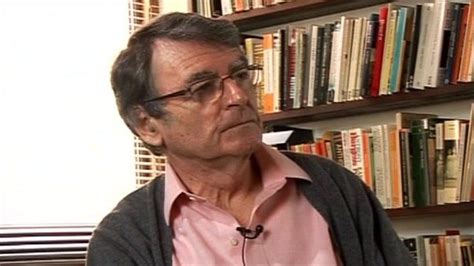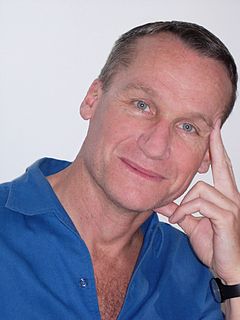A Quote by David Lodge
Any language is necessarily a finite system applied with different degrees of creativity to an infinite variety of situations, and most of the words and phrases we use are "prefabricated" in the sense that we don't coin new ones every time we speak.
Related Quotes
As a poet and writer, I deeply love and I deeply hate words. I love the infinite evidence and change and requirements and possibilities of language; every human use of words that is joyful, or honest or new, because experience is new... But as a Black poet and writer, I hate words that cancel my name and my history and the freedom of my future: I hate the words that condemn and refuse the language of my people in America.
We need visions of a future in which we have applied our infinite creativity to the task of living on a finite world, where we have embraced our role, become comfortable and proficient as planet-shapers, and learned to use our technological skills to enhance the survival prospects not just of humanity but of all life on Earth.
The difficulties in the study of the infinite arise because we attempt, with our finite minds, to discuss the infinite, assigning to it those properties which we give to the finite and limited; but this... is wrong, for we cannot speak of infinite quantities as being the one greater or less than or equal to another.
Does there exist an Infinity outside ourselves? Is that infinity One, immanent and permanent, necessarily having substance, since He is infinite and if He lacked matter He would be limited, necessarily possessing intelligence since He is infinite and, lacking intelligence, He would be in that sense finite. Does this Infinity inspire in us the idea of essense, while to ourselves we can only attribute the idea of existence? In order words, is He not the whole of which we are but the part?
People speak because they are afraid of silence. They speak mechanically whether aloud or to themselves. They are intoxicated by this vocal gruel that ensnares every object and every being. They talk about rain and fine weather; they talk about money, about love, about nothing. And even when they are talking about their most exalted love, they use words uttered a hundred times, threadbare phrases.
It is known that there are an infinite number of worlds, simply because there is an infinite amount of space for them to be in. However, not every one of them is inhabited. Therefore, there must be a finite number of inhabited worlds. Any finite number divided by infinity is as near to nothing as makes no odds, so the average population of all the planets in the Universe can be said to be zero. From this it follows that the population of the whole Universe is also zero, and that any people you may meet from time to time are merely the products of a deranged imagination.
To demarcate [words in way that changes the meaning] is simply to speak a different language than everyone else. And I do not accept semantic games like that. [...] We need to use words as they are actually used and understood. We can correct errors and inconsistencies and make distinctions. But we can't try to foist an alien language on people.
A conditioned mind may be inventive; it may think up new ideas, new phrases, new gadgets; it may build a dam, plan a new society, and all the rest of it; but that is not creativity. Creativity is something much more than the mere capacity to acquire a technique. It is because this extraordinary thing called creativity is not in most of us that we are so shallow, empty, insufficient. And only the mind that is free can be creative.
Understanding a theory has, indeed, much in common with understanding a human personality. We may know or understand a man's system of dispositions pretty well; that is to say, we may be able to predict how he would act in a number of different situations. But since there are infinitely many possible situations, of infinite variety, a full understanding of a man's dispositions does not seem to be possible.
Nature is a language and every new fact one learns is a new word; but it is not a language taken to pieces and dead in the dictionary, but the language put together into a most significant and universal sense. I wish to learn this language - not that I may know a new grammar, but that I may read the great book which is written in that tongue.
I need a little language such as lovers use, words of one syllable such as children speak when they come into the room and find their mother sewing and pick up some scrap of bright wool, a feather, or a shred of chintz. I need a howl; a cry. When the storm crosses the marsh and sweeps over me where I lie in the ditch unregarded I need no words. Nothing neat. Nothing that comes down with all its feet on the floor. None of those resonances and lovely echoes that break and chime from nerve to nerve in our breasts making wild music, false phrases. I have done with phrases.


































